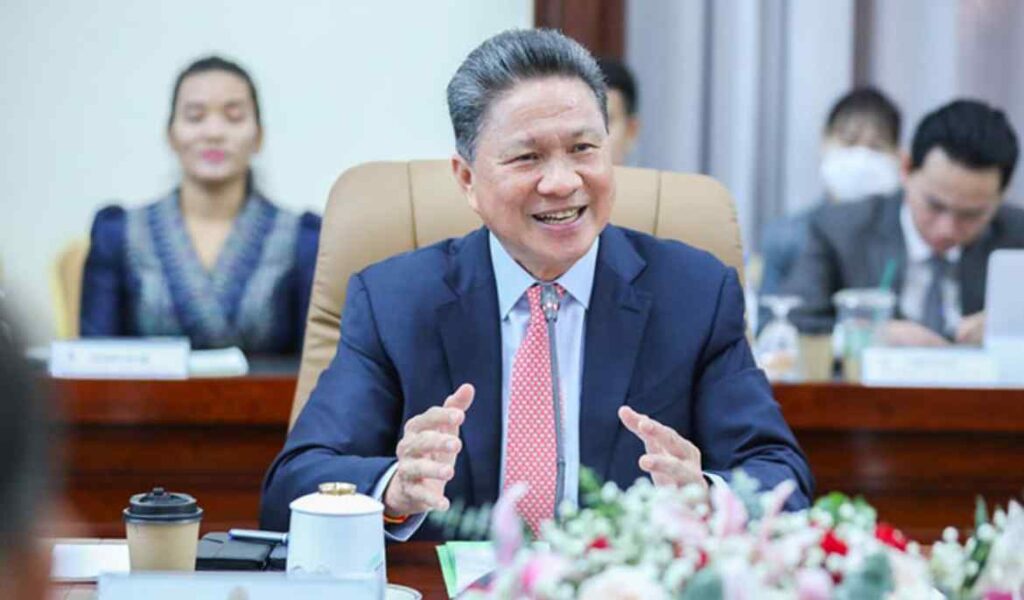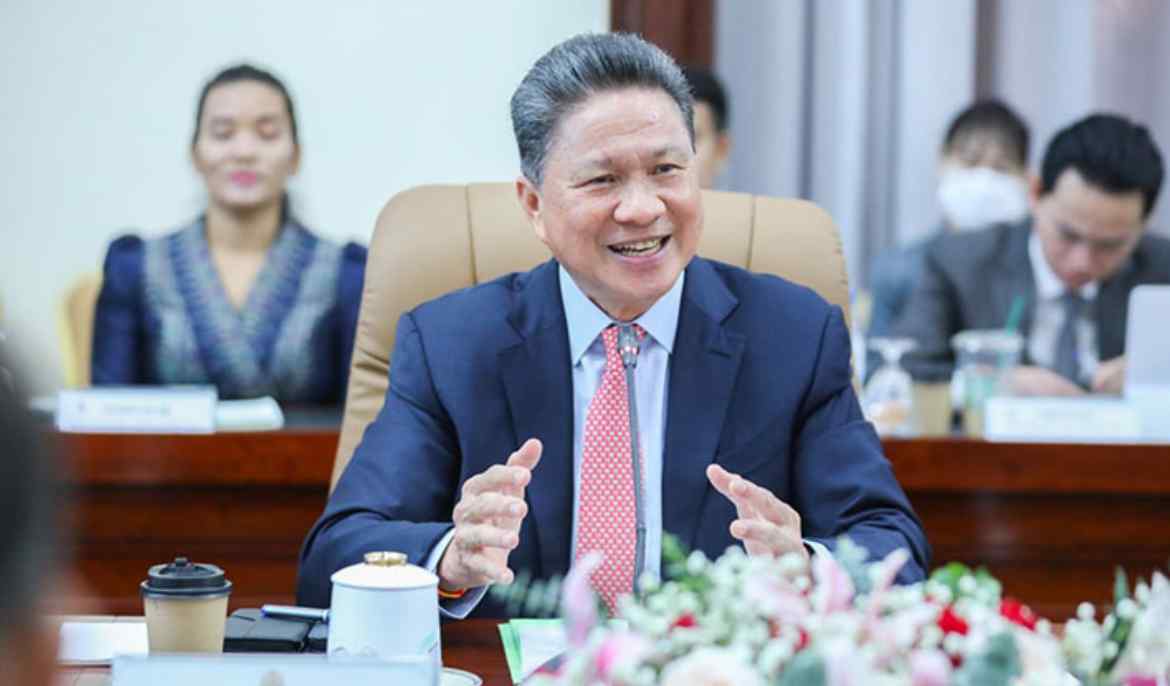The investment climate in Cambodia is showing significant growth in 2024, with promising opportunities and positive growth trends in the coming years, said Sun Chanthol, Deputy Prime Minister and First Vice Chairman of the Council for the Development of Cambodia (CDC).
Chanthol confirmed this during a meeting of the Coordinating Committee for the Government-Private Sector Forum (G-PSF), attended by representatives from relevant ministries and institutions, members of the G-PSF, and the Cambodia Chamber of Commerce on Thursday.
According to a CDC press release on Sunday, the purpose of this meeting was to examine the progress of the CDC’s work related to the G-PSF mechanism, discuss the progress, challenges, and suggestions for improving the effectiveness of the dialogue between the G-PSF working groups across 16 sectors, review and discuss the preparation of a progress report on the implementation of measures in the G-PSF for the second half of 2024.
The Deputy Prime Minister highlighted several key points, including the meeting’s agenda and objectives, the importance of the G-PSF mechanism in improving Cambodia’s business and investment environment, the sharp reform measures introduced as part of the main package at the 19th G-PSF, the background on the establishment, strengthening, and expansion of the roles, responsibilities, and scope of work of the Coordinating Committee for G-PSF, the continued expansion of the G-PSF working groups and the significant progress achieved by the mechanism in the past.
Chanthol said, “Cambodia’s investment climate is experiencing significant growth in 2024, with positive opportunities and trends anticipated for the coming years.”
He also emphasized the progress made in preparing and officially launching the CDC Investment Project Management (cdcIPM) system. This system is designed to promote and attract foreign investment, provide investment facilitation and maintenance services, and serve as a mechanism for bilateral dialogue between the government and the private sector through previous joint committee meetings.
Representatives from CCC expressed their readiness to engage with the Royal Government and collaborate on advancing the G-PSF implementation process. They also highlighted key challenges and proposals from the private sector regarding the G-PSF mechanism’s past implementation, including the organization of meetings between private sector and government working groups across 16 sectors.
Lim Heng, Vice President of CCC, told Khmer Times that the driving force behind the increase in investment in 2024 is economic growth, political stability, and the peace guaranteed for investors in Cambodia, coupled with the new Cambodia Investment Law, which is particularly attractive for investors.
Additionally, Cambodia has established agreements with countries such as China, South Korea, the United Arab Emirates, and under the RCEP framework, making the country even more appealing for investment, he added.
“In some regions, countries lacking stability, such as Bangladesh and Myanmar, have compelled investors to relocate to Cambodia.”
Moreover, if the trade tensions between the US and China persist, with both nations imposing higher tariffs on each other, Cambodia could offer an opportunity to attract investment from both the US and China to facilitate exports to these markets,” Heng said.
“In the years ahead, we anticipate the investment climate will continue to improve due to significant infrastructure projects, including airports, shipping ports, and transport links with other countries and international markets, all of which are crucial factors,” he added.
Cambodia had approved 414 investment projects this year, up by 146 compared to 268 projects in 2023 or an equivalent to 54 percent growth, according to CDC’s report.



